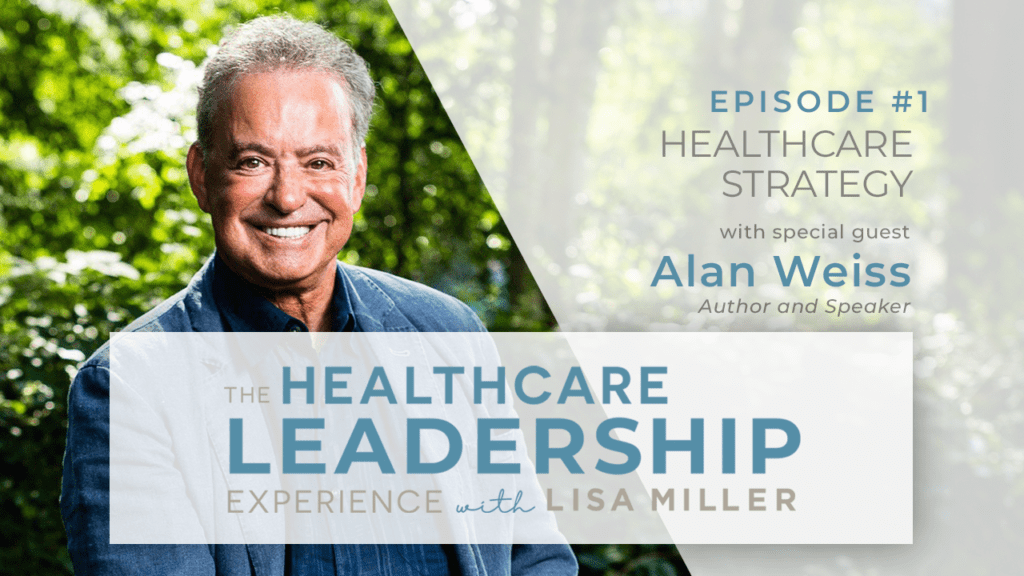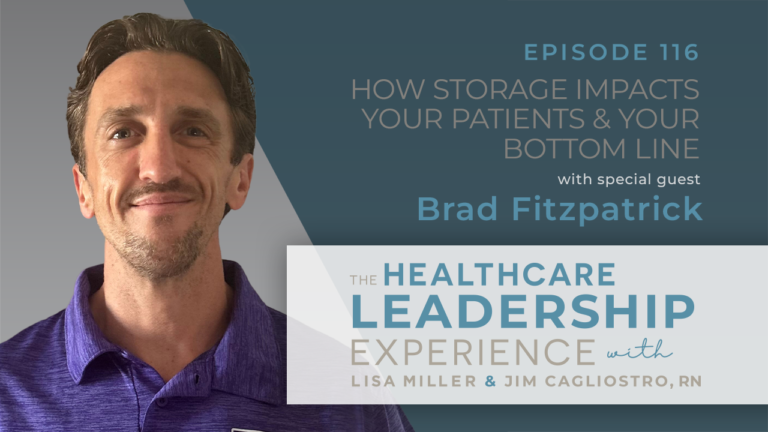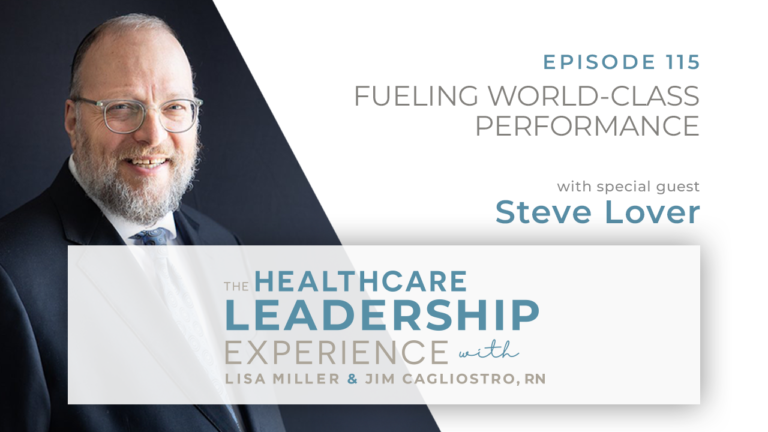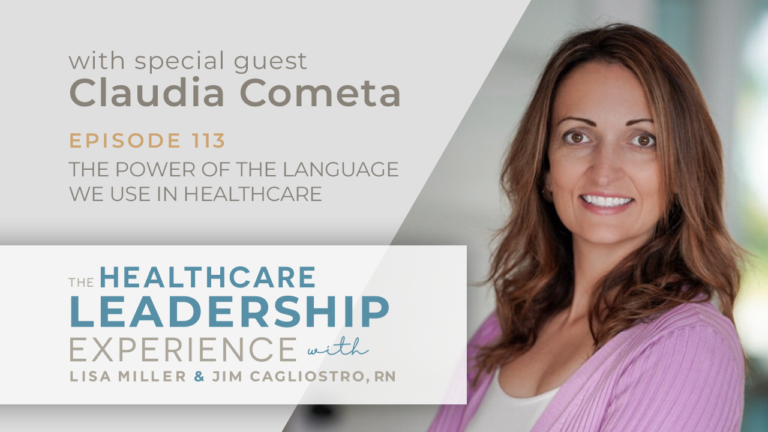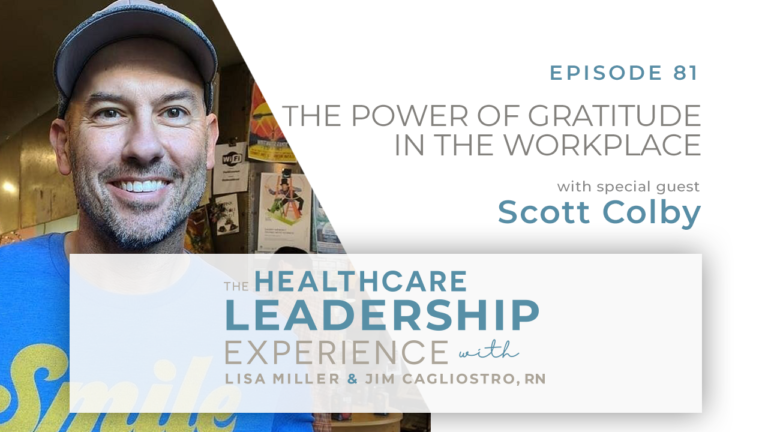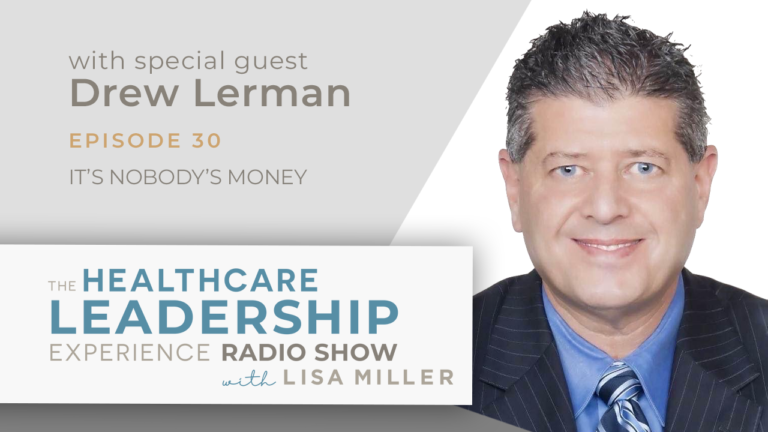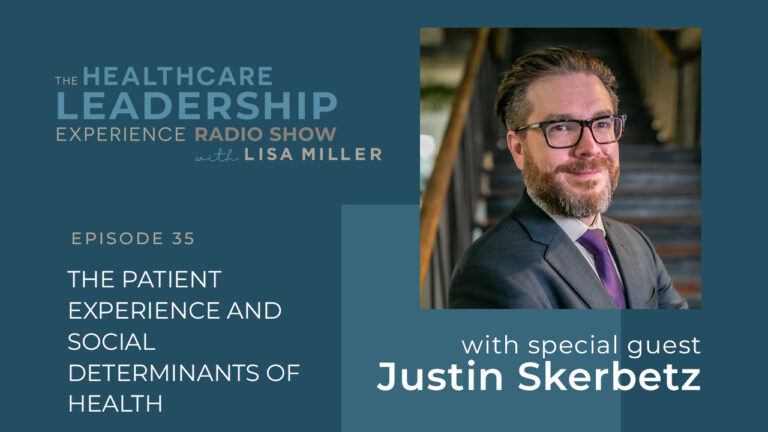In this podcast, Lisa is joined by Dr. Alan Weiss, Founder and CEO, Summit Consulting Group to discuss healthcare strategy. Alan’s clients have included Merck, Hewlett Packard, GE, Mercedes-Benz and over 500 leading corporations.
Alan has written over sixty books on consulting, strategy, innovation and leadership.
In his book ‘’Fearless Leadership,’’ Alan Weiss discusses the fear of rejection that leads to procrastination and prevents people achieving all they are capable of. One of the biggest impediments to success, Alan observes, is the overt and covert fears we all have, that too often lead to procrastination. By getting to the root cause of those fears, we are empowered to overcome the obstacles that hold us back.
And as Alan, explains on The Healthcare Leadership Experience, every organization can harness the power of disruption and volatility to effect change, rather than fear it.
On this first episode of The Healthcare Leadership Experience, you’ll hear:
- The reasons every organization, especially hospitals, benefits from a healthcare strategy advisor.
- The qualities and characteristics healthcare leaders need to look for in a mentor or business coach.
- The reasons every healthcare system needs to exploit change, rather than adapt to it and why things aren’t going back to normal after the pandemic … ‘’You need to get off the highway and get on a better route.’’
- Why your pre-pandemic healthcare strategy is no longer effective in taking your health system forward – and why it’s essential to make some decisions now about the nature and direction of your organization.
- Why hospital discharge is the number one opportunity for improving communication and the patient experience – and why every hospital must pay attention to ‘’graciously and professionally moving patients out of the hospital and back home again.’’
- The prime motivators for your employees (fact: no organization has happy customers and unhappy employees).
- The two major hurdles currently preventing people from regaining trust in healthcare during the pandemic.
CLICK HERE TO DOWNLOAD THE PDF TRANSCRIPT
Resources:
🖥 https://alanweiss.com
.
Connect with Lisa:
🖥 https://viehealthcare.com
📱https://www.linkedin.com/in/lisamiller/
CLICK HERE TO OPEN THE FULL TRANSCRIPT
Lisa Miller (00:00): Okay. Good morning, Alan.
Alan Weiss (00:17): Good morning, Lisa. Happy to be here and happy to kick it off.
Lisa Miller (00:19): Great. Thank you, Alan. So I want to jump right into your role as an advisor for consultants, consulting firms, hospitals, healthcare organizations, Fortune 500 companies throughout the world, you’ve been an advisor. And one of the questions I have for you is twofold. Can you give us some insights into why it’s so important for healthcare leaders to have an advisor? Not just to tell them the areas where they can innovate, but maybe have those tougher discussions sometimes, the things that they need to hear, and why an advisor is so important. And I say that because you’re my advisor and you have given me great advice on innovation and insights, but you’ve also had to talk about things that I needed to hear too, to be a better business owner and a better consultant to my hospital. So I just wanted to get your insights on why it’s important to have advisors.
Alan Weiss (01:27): Everyone needs advisors because they need frames of reference from outside of their immediate reality. So no matter what kind of business you’re in or what kind of professional you are, you need advisors. But it’s especially sensitive for hospitals because the more you’re dealing with urgency — urgent care, for example, first responders, life and death, and so on — there’s a natural tendency to ignore things that don’t immediately pertain to health and safety and so on. But the fact is that if hospitals and healthcare organizations, they’re going to be effective, they’ve got to be well managed. They’ve got to be efficient.
Alan Weiss (02:04): One of the things you do is help reduce costs in these organizations without reducing quality. In fact, improving quality in many cases. So people who have great passion for what they do, whether it’s medicine or teaching or firefighting or whatever it is, newspaper reporters, they often tend to put passion above all else, but the issue is your passion is best applied when the business is run well.
Lisa Miller (02:29): That’s great. I love that. Can you give us some aspects or characteristics of a quality of a great adviser if they’re going out and looking for an advisor or a strategic mentor or coach?
Alan Weiss (02:43): Well, the best advisers have widespread experience. They need to bring a perspective to any single client. So consider taking a widespread view of things and like a laser, focusing it on a particular area of need. So just because someone is a coach, for example, doesn’t mean they’re going to be a good advisor. Now just because somebody’s a consultant doesn’t mean they’re going to be a good advisor. Ideally, an advisor should be someone who is seen as a peer of the person or people being advised at the very least. So if it’s the senior management, it should be a peer of senior management. Also, the advisor should be somebody who is not especially strong in content in that particular organization.
Alan Weiss (03:24): In other words, organizations are overflowing with content experts. You need somebody who knows a lot of different things from a lot of different organizations because effective management and productive operations, well that’s a process. When I was first talking to Mercedes-Benz North America, the Vice President says, “What do you know about auto dealing?” And I said, “It really doesn’t matter. You got auto experts in the hallway here I have to trip over to get to your office. What you’re not doing well is customer service and that I can advise you on.” So that’s the kind of advice I’m talking about.
Lisa Miller (04:06): Great Alan. Thank you. The other topic I wanted to cover with you this morning is adapting to change. Healthcare as well as our whole world has had such change — and can you talk to us a little bit about how we can adapt to change? Because this year has taught us better than anything, something like a pandemic can come in and really just create upheaval in healthcare as well as all our lives, but that’s going to be probably a constant. It probably has been to a lesser degree and we haven’t realized it as much, but can you talk a little bit about how we can help us, and give us some insights on how to adapt to change?
Alan Weiss (04:57): Well, I think the mistake people make is they try to become proficient at adapting to change when your attitude really has to be exploiting change. If you just try to adapt to change, it’s a defensive battle. You’re driving down a highway and your lane clogs up so you try to change lanes. Nobody lets you in. You finally find a space. That’s adapting to change. So if you want to exploit change, get off the highway and get on a better route. If you have to, build a new road. And so what happens is you take a look right now. Some people have adapted to change by allowing people to work at home, but exploiting change to me is using Zoom and other media like it to create meetings, to create interactions, to make sales, to service people.
Alan Weiss (05:40): Telehealth is another example, wherein they’re exploiting technology. Wherein, I think they’ll last well beyond the pandemic, they’ll last beyond the forces that created these needs. So I think the mistake people make is, “Oh God, change. How do we adapt until things go back to normal?” Things aren’t going back to normal. And I’ll even make a case that if you look at disruption and volatility, which are always talked about together, should be the name of the law firm, right? Disruption and volatility? You should use disruption and volatility as offensive weapons, not as something to be feared. So it’s about exploiting change. That’s how you come out on top.
Lisa Miller (06:13): Yeah. Thank you. That’s a big insight. I would agree with that. Thank you, Alan. Can we talk a little bit about something that you’ve been sharing with all of us that is any strategy pre-pandemic is not going to work and just talk about how hospitals really have to think about strategy in a new way now and you’ve been sharing a lot about pre-pandemic strategy isn’t going to work now?
Alan Weiss (06:55): Well, I think that it’s going to be a huge business rebirth along about March, April, or May somewhere in their next year, 2021. Surf this wave that’s coming because otherwise, you’re going to get knocked over by the wave. So what happens is any strategy in place pre-pandemic by definition can no longer be effective today. You’ve got to change the strategy, you’ve got to come up with something else. I talked to somebody the other day and they said, “Well look. We can’t talk right now because we’re in the second year of a three-year strategy.” I said, “It’s exactly why you should talk. If you’re in the second year of a three-year strategy that began pre-pandemic, you’re going downhill at a rapid rate right now. Conditions have totally changed and some conditions that change are permanent.”
Alan Weiss (07:36): I think about 25% of every organization’s operation, healthcare or not, will be changed. So you have to take as a reality that a strategy pre-pandemic is no longer going to help direct the organization. You have to create a new one. I created something called sentient strategy. And the issue here is that you can’t take a look three years out or five years out. You might as well guess or use a magic eight ball. You have to look about a year out and make some decisions about the nature and direction of your business.
Lisa Miller (08:09): Yeah. Absolutely. I have a couple more questions for you and I want to let the audience know you’ve got a great book called Fearless Leadership. Can you share some insights because it’s probably very timely too with healthcare leadership? I think reading your book and you have other books like Leadership Every Day — but can you talk a little bit about some aspect of your book that you can share, Fearless Leadership, please?
Alan Weiss (08:48): I looked at why people don’t charge more for their services and I realized they often didn’t have the self-esteem to charge more. They felt like imposters and they couldn’t charge more and that’s businesses and individuals, but then I asked why was that? Well there’s a fear and a lot of people fear that they’re going to be rejected and so they don’t do their best, they don’t offer the most. They fear that their ego is going to be bruised. They fear that there’s going to be some kind of scorn or critique of what they’ve done. One reaction to this, Lisa, is they procrastinate because the fear of being critiqued for not getting something done is better to them than the critique of doing something and being critiqued for the result. And so procrastination is basically fear-based and people have what I call overt and covert fears. The overt fear is of being castigated or being mocked or being humiliated.
Alan Weiss (09:41): I’ve never walked into a buyer’s office and lost money. I mean, I might not get the sale, but I’ll learn something, but nobody’s shooting at us, right? But we create now these sort of imaginary fears we should have like there’s a monster under the bed waiting for us. The covert fears are the fears we don’t even articulate well. We’re not consciously competent. But a parent told us 20, 30, 40 years ago, “You’ll never amount to anything.” And no matter how successful we are, we still feel we’re not amounting to anything. So we’ve got to root these things out and deal with them. And I’ve found one of the worst impediments to anyone’s success is their own spoken and unspoken fears and they need to get them out on the surface and deal with them.
Lisa Miller (10:19): Great, thank you. So one aspect I see is an opportunity for hospitals is communication and it’s how we are communicating during COVID and having patients want to come back—but yet there’s a fear of maybe contracting the virus versus making a really safe environment. Can you talk about communication and how hospitals should be or maybe enhancing or improving how they think about and communicate safety and just patients coming back and their families and just how do they do that well, Alan?
Alan Weiss (11:04): Well people are leery of communication because if you look through this crisis, which is now in its 10th month I guess, people have been told a lot of things—which was simply not true. I’m not talking about fake news, I’m not talking about anything like that. I’m talking about scientists and medical people as well as politicians. People had just been told things that were not true because the decision-making processes here all along had been terrible, the critical thinking skills have been terrible. So they weren’t malicious lies, but they were untruths nonetheless so people are leery. I think the important thing is social proof. Recently they said, I don’t know, three ex-Presidents we’re going to get the new vaccine. Now I don’t know how much faith that gives people, but the intent there is social proof that the vaccine is safe. I think if you did it with a celebrity, a sports figure, it would probably be much more effective.
Alan Weiss (11:53): They wouldn’t want to be threatening their careers, they’re getting the vaccine. So I think you have to have social proof, you have to demonstrate to people. Recently here in Rhode Island, they set up two field hospitals and people were very concerned about going to a field hospital, not a regular hospital. And the idea was the field hospital would take care of the less seriously ill, freeing up the more intense procedures in the regular hospitals. Well, the media interviewed some people who went to these field hospitals and they were raving and they said, “The care is excellent. You can walk around, you can make calls, you can do this. We felt like royalty. What treatment.”
Alan Weiss (12:24): Well when they did that, and these were just two people, everyday people, you could see the reaction was, “Okay. Then if it comes to that, I can do that.” So I think we need that kind of social proof. I think we need to be extraordinarily honest and admit the fact that there’s going to be an occasional, let’s say, adverse reaction to the vaccine, but it’s going to be one in 20,000 or whatever it is. But that’s the key. People look for — after they feel that there’s been communication — that there’s proof that it was true or there’s proof before the fact that they can rely on it.
Lisa Miller (12:57): All right. So a great idea might be patients have gone through the hospital, whether it’s the ER or surgery, having some kind of campaign saying, “This was a spectacular visit. I felt safe,” and really hearing that from an individual level. Individuals coming into a hospital as well as you’re saying we need social proof.
Alan Weiss (13:21): I’ll tell you something, the first and last person you see in a hotel is a doorman. And the doorman makes the biggest impression on how he welcomes you and then how he sends you on his way. In a hospital, many people have a terrific experience. The nurses, the transport people, the technicians, the doctors are all wonderful — but discharge is awful. And the last thing they remember is discharge. And I don’t think hospitals pay nearly enough attention to graciously and professionally moving people out of the hospital and back home again. And I think that’s one weakness they have to think about.
Lisa Miller (13:54): Yeah. I agree with you. I think discharge needs to be an area of incredible focus because it is that last impression and it’s so important because the patients have to do so many things as they go home. I agree with you. That whole discharge process could be a big opportunity, a big win for hospitals. So Alan, thank you. I do appreciate that insight. So as we wrap up, is there anything that you’d want to share in terms of giving healthcare leaders some advice or something as they go into 2021 that they can think about? We’d love to hear from you, Alan, because you see opportunities, you see trends, or you see where we need to kind of focus our attention — and if you’ve had some thoughts that you could share for 2021 for our listeners.
Alan Weiss (14:56): Well, I’ve never seen an organization that had happy customers and unhappy employees. And consequently, if you want people to trust the hospital, if you want patients to feel well taken care of, the employees have to feel trusted and well taken care of. And so I would put a lot of attention on all employees in the hospital — no matter what their jobs, to make sure that they’re being heard, to make sure that they’re being treated well, to make sure that recognized. It’s not really compensation that motivates most people, it’s having some latitude of action, applying your talents, and being recognized for it. So I would pay attention to that. The second thing I’d say, since you’ve given me the opportunity, is there going to be two major hurdles in the near future. One hurdle is the various governmental units saying, “It’s now safe.”
Alan Weiss (15:45): “You can dine, you can visit beauticians and get massages and go to the gym. You can go to the movies, we can open the theaters.” So the government has to okay that, but the second hurdle is people’s perception that it’s safe to do that. And so I think that healthcare has to work closely with the media and closely with the government agencies responsible to give reassurance to people that it genuinely is okay, that it’s not a political decision being made, it’s a scientific and medical decision and that will revive the economy and that will revive everyone’s best fortunes. So that’s my opinion.
Lisa Miller (16:24): Great. Alan, thank you so much. I appreciate your time today and just having a discussion with those that are on our podcast and we look forward to having you back so thank you.
Alan Weiss (16:36): Thanks a lot. Good luck with the series.
